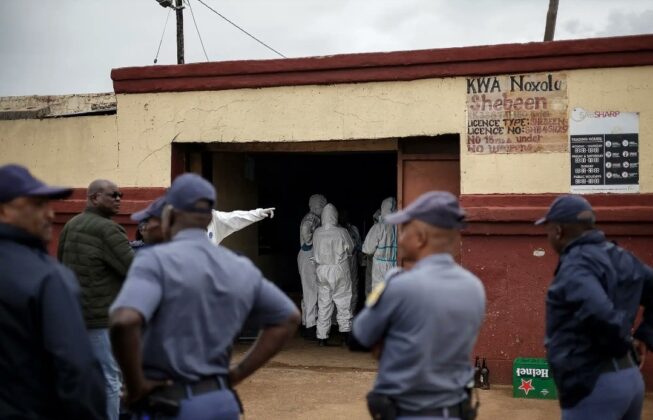
IMG 20240604 WA0026
Picture courtesy: (Getty) Officials work on the site of an apartment collapse
(The Post News)- The Central Intelligence Agency (CIA) and Federal Bureau of Investigation (FBI) have begun a public campaign to recruit secret agents, leveraging modern technology and social media to bypass Russian security measures.
The FBI announced a strategy that was directed at the recruiting process in Russian government sources in the US; geo-targeting includes social media ads to phones located near Russia’s embassy in Washington.
The ongoing recruitment effort is not a secret mission; rather, it has been made official to the public in the Russian language.
The current recruitment operation was made official on Monday, June 3.
The ongoing Russian invasion of Ukraine has provided US intelligence services with an opening to recruit Kremlin insiders furious with the manipulation of the war.
CIA Director Bill Burns last year, during a speech in the United Kingdom, argued that the restlessness creates a once-in-a-generation opportunity for them.
According to the video posted on social media by the CIA in Russian language was an appeal to the nationalism of Russians who have access to information that could be helpful to the United States.
The videos provide instructions for potential Russian secret agents on how to avoid detection by Russian services. They explain how to use virtual private networks (VPNs) and the Tor web browser to anonymously and securely contact the CIA via the Dark Web.
David McCloskey, a former CIA officer and author of Moscow Twitter, said that the business is the exchange of information that the agent would provide for something that they want.
They are looking for people who have information about what the Russian leaders’ priorities are and what they need to accomplish.
The attempt focuses on the evolution of an intelligence service that has historically controlled its essential mission of countering national security threats and informing policy makers under a mask of secrecy.
In the past, the CIA’s internally uncherished and short-lived director, James Schlesinger, finally posted a sign on a highway marking the site of the ultra-secret organization’s Virginia headquarters in 1973, a site that had previously been kept hidden from the public.
Douglas London, a former CIA station chief argued in a post that the direct approach is unusual but nevertheless the one that could prove effective in extending a Russian populace with few options to express their dissatisfaction.
Russians, who aren’t happy with the Kremlin’s state-sanctioned corruption and abuse and have no way to react openly, are left with few alternatives other than getting external support.
Although the technology is new, surveillance has underpinned, and usually undermined, US-Russian relations for decades.



